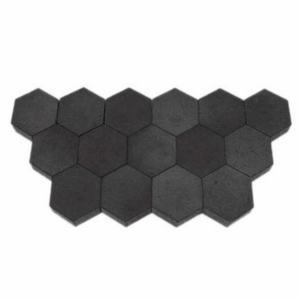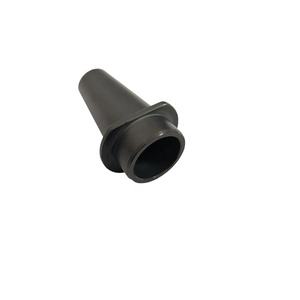Discover Premium Ceramic Products | Durability & Elegance United | Advanced Ceramics
PRODUCT PARAMETERS
Description
Introduction of Boron Carbide Ceramics
Boron carbide ceramics is an inorganic, non-metallic material with carbon and boron as its main components, and its chemical formula is B4C. Since its discovery in the early 20th century, this material has attracted a great deal of attention because of its unique physical and chemical properties. Boron carbide ceramics have an extremely high hardness, second only to diamond and cubic boron nitride, which makes it important in the field of wear-resistant materials. It also exhibits excellent corrosion resistance, high-temperature stability and low-density properties, attributes that make it ideal for the manufacture of bullet-proof vests, nozzles, bearings and other mechanical components that require high wear resistance. Boron carbide ceramics can also be prepared in a variety of shapes and sizes through different processes to meet the needs of different industries.
Characteristics of Boron Carbide Ceramics
Boron carbide ceramics are known for their excellent performance characteristics, starting with their ultra-high hardness and strength, which makes them resistant to severe abrasion and scratching, making them ideal for use in cutting tools and abrasives. Secondly, the material possesses excellent chemical stability and is less likely to react with chemicals such as acids and alkalis, even in extreme environments, making it widely used in certain key components in the chemical industry. In addition, the superior thermal stability of boron carbide ceramics and their ability to maintain structural and property stability at extremely high temperatures makes them one of the key materials in the aerospace and nuclear industries. Finally, it is worth mentioning its lightweight properties, which, due to its low density, make boron carbide ceramics an ideal option for application scenarios that require light weight but high strength. Together, these characteristics give boron carbide ceramics a wide range of applications.
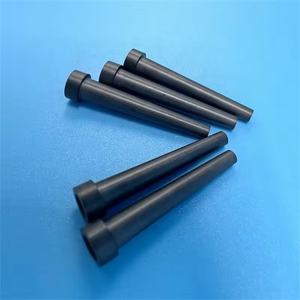
(Exceptional Hardness Boron Carbide B4C Ceramic Square Bar)
Specification of Exceptional Hardness Boron Carbide B4C Ceramic Square Bar
The boron carbide B4C ceramic square bar provides extreme solidity. This product is just one of the hardest compounds readily available. It ranks 3rd after ruby and cubic boron nitride. The Vickers hardness exceeds 30 GPa. This makes it suitable for wear-resistant applications. The make-up includes boron and carbon atoms in a strong covalent framework. It resists abrasion successfully. It surpasses materials like silicon carbide and alumina in severe conditions.
The square bar manages high temperatures. It maintains stability approximately 1600 ° C in oxidizing atmospheres. Thermal conductivity is low. This decreases warm transfer risks in essential configurations. It functions well in heater elements or high-temperature equipment.
Chemical resistance is solid. The material endures acids and alkalis. It suits corrosive industrial settings. It does not weaken touching the majority of chemicals. This guarantees long-term dependability.
Standard dimensions vary. Usual sizes consist of 10mm x 10mm to 50mm x 50mm. Lengths range from 100mm to 500mm. Custom sizes are offered. Production techniques involve hot pushing or sintering. These procedures develop thick, consistent structures. Thickness gets to 2.52 g/cm TWO. Porosity continues to be listed below 1%. This enhances structural honesty.
Mechanical toughness is high. The flexural stamina goes beyond 400 MPa. Compressive toughness exceeds 2000 MPa. It deals with hefty loads without splitting. Use resistance reduces surface damages. Friction coefficients stay reduced. This lowers power loss in moving parts.
Electric residential properties consist of insulation capabilities. The product does not carry out power. It operates in digital or high-voltage environments.
Consistency is ensured. Manufacturing makes sure consistent grain framework. This avoids vulnerable points. Performance remains predictable across sets.
Alternatives include personalized surface coatings. Grinding or brightening achieves particular roughness levels. Resistances meet stringent industrial criteria.
Applications extend numerous areas. Shield systems use it for ballistic security. Nozzles, seals, and bearings gain from its sturdiness. Industrial put on components last much longer. Nuclear reactors use it for neutron absorption. Cutting devices maintain sharp sides.
The boron carbide square bar incorporates hardness, thermal security, and chemical resistance. It adapts to demanding environments. Personalization supports diverse design requirements.
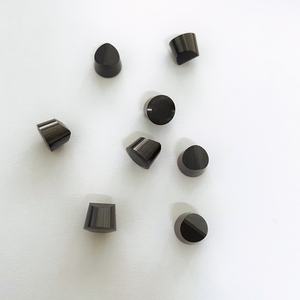
(Exceptional Hardness Boron Carbide B4C Ceramic Square Bar)
Applications of Exceptional Hardness Boron Carbide B4C Ceramic Square Bar
Boron Carbide (B4C) ceramic square bars stick out for their extreme hardness and longevity. They place among the hardest materials worldwide, second only to diamond and cubic boron nitride. This makes them optimal for high-wear, high-stress settings. Their firmness originates from solid atomic bonds, making certain resistance to abrasion, effect, and rust. These bars retain toughness even at temperature levels over 1,500 ° C, making them suitable for extreme heat conditions.
B4C square bars are extensively utilized in armor systems. They are lightweight compared to steels like steel but provide superior ballistic defense. Military vehicles, body armor, and aircraft shield commonly make use of these bars to stop bullets and shrapnel. The material’s capability to soak up energy without damaging contributes to its protective qualities.
Industrial applications take advantage of boron carbide’s wear resistance. Nozzles for sandblasting or waterjet reducing use B4C bars because they last much longer than steel or tungsten carbide. They keep specific forms under continuous rubbing. The ceramic’s chemical stability additionally makes it useful in rough settings, such as pumps handling destructive liquids or equipment revealed to acids.
Nuclear reactors depend on boron carbide for neutron absorption. The product’s boron web content captures neutrons successfully, helping control nuclear responses. Square bars made of B4C are utilized in control rods and protecting components. Their high melting point guarantees they perform accurately even in reactor cores with severe temperatures.
B4C bars are additionally made use of in grinding and polishing tools. Their hardness enables reliable material elimination in abrasive procedures. Cutting tools and dies made from these porcelains stay sharp much longer, decreasing downtime for substitutes.
Machining boron carbide calls for specialized methods like diamond grinding. The material’s brittleness implies careful handling is required to stay clear of splits. Custom-made shapes and sizes are attainable for certain commercial needs. In spite of challenges in processing, the advantages of B4C ceramics make them a leading option for demanding applications.
Company Introduction
Advanced Ceramics founded on October 17, 2014, is a high-tech enterprise committed to the research and development, production, processing, sales and technical services of ceramic relative materials and products.. Since its establishment in 2014, the company has been committed to providing customers with the best products and services, and has become a leader in the industry through continuous technological innovation and strict quality management.
Our products includes but not limited to Silicon carbide ceramic products, Boron Carbide Ceramic Products, Boron Nitride Ceramic Products, Silicon Carbide Ceramic Products, Silicon Nitride Ceramic Products, Zirconium Dioxide Ceramic Products, Quartz Products, etc. Please feel free to contact us.(nanotrun@yahoo.com)

Payment Methods
T/T, Western Union, Paypal, Credit Card etc.
Shipment Methods
By air, by sea, by express, as customers request.

5 FAQs of Exceptional Hardness Boron Carbide B4C Ceramic Square Bar
What makes B4C ceramic square bars exceptionally hard? Boron carbide has a unique crystal structure. Strong covalent bonds between boron and carbon atoms create extreme hardness. This material ranks third in hardness after diamond and cubic boron nitride. It maintains this property even at high temperatures.
Where are B4C ceramic square bars commonly used? These bars work in harsh industrial environments. They serve as abrasive blasting nozzles, wear-resistant parts, and armor components. Industries like mining, aerospace, and defense rely on them. Their hardness prevents rapid wear under friction or impact.
Can B4C ceramic square bars withstand high temperatures? Yes. They resist temperatures up to 1,800°C in inert atmospheres. Oxidation resistance drops above 1,000°C in air. They suit applications needing thermal stability without direct oxygen exposure.
Are there limitations to using B4C ceramic square bars? The material is brittle. It cracks under sudden heavy impacts. Steel or other tough ceramics handle impact better. B4C excels in wear resistance but requires careful handling during installation.
Can B4C ceramic square bars be customized? Manufacturers adjust dimensions, surface finishes, and tolerances. Custom shapes or sizes need detailed specifications. Production time and cost vary based on complexity.
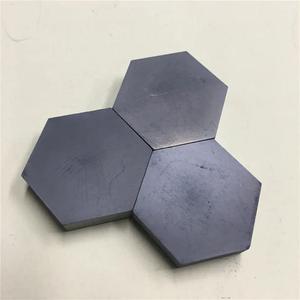
(Exceptional Hardness Boron Carbide B4C Ceramic Square Bar)
REQUEST A QUOTE
RELATED PRODUCTS
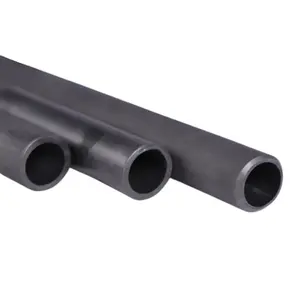
High Purity Nano Particle Size Boron Carbide Powder D50 500nm 1000nm 1um 2um B4C Powder for Precision Engineering Ceramics
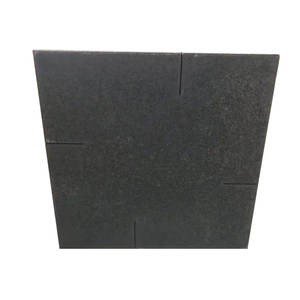
Super Hard Boron Carbide B4c 93-99% Boron Carbide Powder for Wear Resistance Boron Carbide Ceramic Rod Sandblasting Nozzle
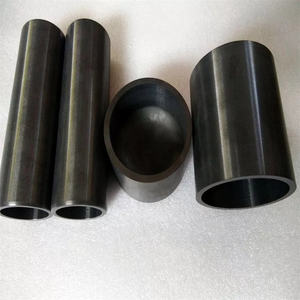
Customized B4C Boron Carbide Ceramic Sand Blasting Nozzles Pipe
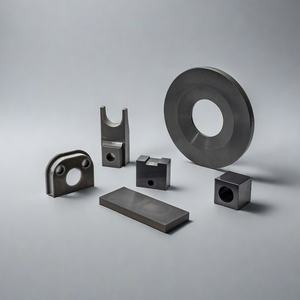
Light Weight High Hardness Boron Carbide(B4C) Ceramic Plate
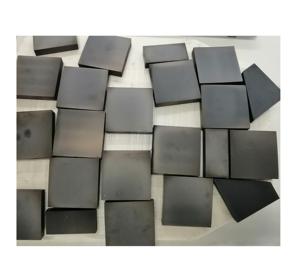
Fine Quality Boron Carbide 99.5% B4C Boron Carbide Ceramic Target for Nanoelectronics
